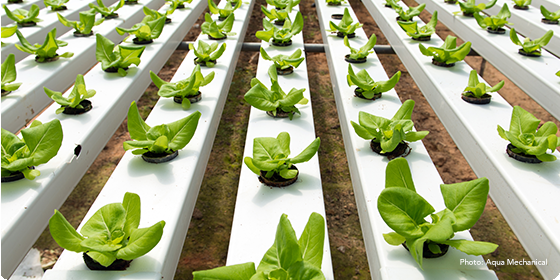
In March, the United States District Court for the Northern District of California ruled against the Center for Food Safety (CFS) in their effort to restrict organic certification of hydroponic produce. Hydroponics refers to a form of crop production that involves growing plants in water or a nutrient solution instead of soil, and it has become one of the fastest growing markets of agriculture in the U.S. thanks in part to a reputation for requiring less space and resources than traditional methods.
In January 2019, CFS filed a petition with the USDA to initiate a rulemaking process to exclude hydroponic crops from organic certification. Center for Food Safety v. Perdue, No. 20-CV-01537-RS, 2021 WL 1220949 (N.D. Cal. Mar. 19, 2021). The USDA’s organic certification program, which is administered under the Organic Food Production Act of 1990 (OFPA), currently sets certain requirements for certifying produce as organic based on the soil in which it is grown. CFS argued in its petition that if no soil is being used, as is the case with hydroponics, then it cannot be certified as organic.
The OFPA’s primary purpose is to ensure that consumers and producers are on the same page with respect to what qualifies as an organic product. In order to be considered organic, a crop must: (1) not be produced or handled with synthetic chemicals; (2) not be produced on land that has had any prohibited substances applied to it within the past three years immediately preceding harvest; and (3) be produced in compliance with the organic plan as agreed to by the producer, the certifying agent, and the state organic certification program. 7 U.S.C. Section 6504.
CFS claimed in its petition that hydroponic produce cannot be certified as organic under the OFPA because the statute includes various requirements for soil quality and control. But in its denial of the petition, the USDA emphasized that it has interpreted the OFPA as allowing for the certification of hydroponic produce since at least 1995 and does not want to introduce inconsistent or confusing standards. Center for Food Safety v. Perdue at *5. After the USDA’s denial of its rulemaking petition, CFS filed suit in the Northern District of California.
Both CFS and the USDA requested summary judgment in the case. CFS argued that the USDA’s decision to deny its petition was “arbitrary and capricious” in violation of Section 706 of the Administrative Procedure Act. The USDA, on the other hand, asserted that its denial of CFS’ petition was reasonable based on its interpretation of OFPA and the petition. In determining whether to grant summary judgment for the CFS or the USDA, the court weighed the logic behind CFS’s arguments against the deference owed to the USDA’s interpretation of the OFPA.
CFS contended that the soil standards of OFPA create requirements for organic produce that hydroponics cannot meet. This argument has some logical appeal, which the court acknowledged. If organic produce must meet certain soil requirements, then it only follows that organic produce must have soil. Ultimately, however, the court was unpersuaded by CFS’s position. The court found that these soil requirements can easily be interpreted as applying only to soil-based systems, rather than as implicitly prohibiting organic certification of hydroponic systems.
The court instead agreed with the USDA’s interpretation of OFPA—that the statute does not compel all organic produce to be grown in soil. First, the court established that OFPA does not clearly address the issue of whether or not hydroponic systems are prohibited, so the court’s inquiry ultimately concerned whether USDA’s interpretation of the statute is reasonable. As the court’s opinion recounts, Section 6512 of the OFPA permits any production or handling practice “not prohibited or otherwise restricted by this chapter,” and there is no mention of hydroponics in the statute. As a result, the court concluded that the USDA’s interpretation of the OFPA as allowing the organic certification of hydroponic produce is reasonable. Therefore, USDA’s denial of CFS’ petition was upheld as permissible and hydroponics may still be certified by USDA as organic.
CFS has until June 17 to appeal the district court’s decision to the U.S. Court of Appeals for the Ninth Circuit. Alternatively, it may file a separate petition with the USDA seeking the issuance of a rule establishing specific requirements for hydroponics, similar to what the agency has developed for soil-based agricultural systems. For now, the organization’s intended course of action and the implications of the district court’s decision more generally remain unknown.












